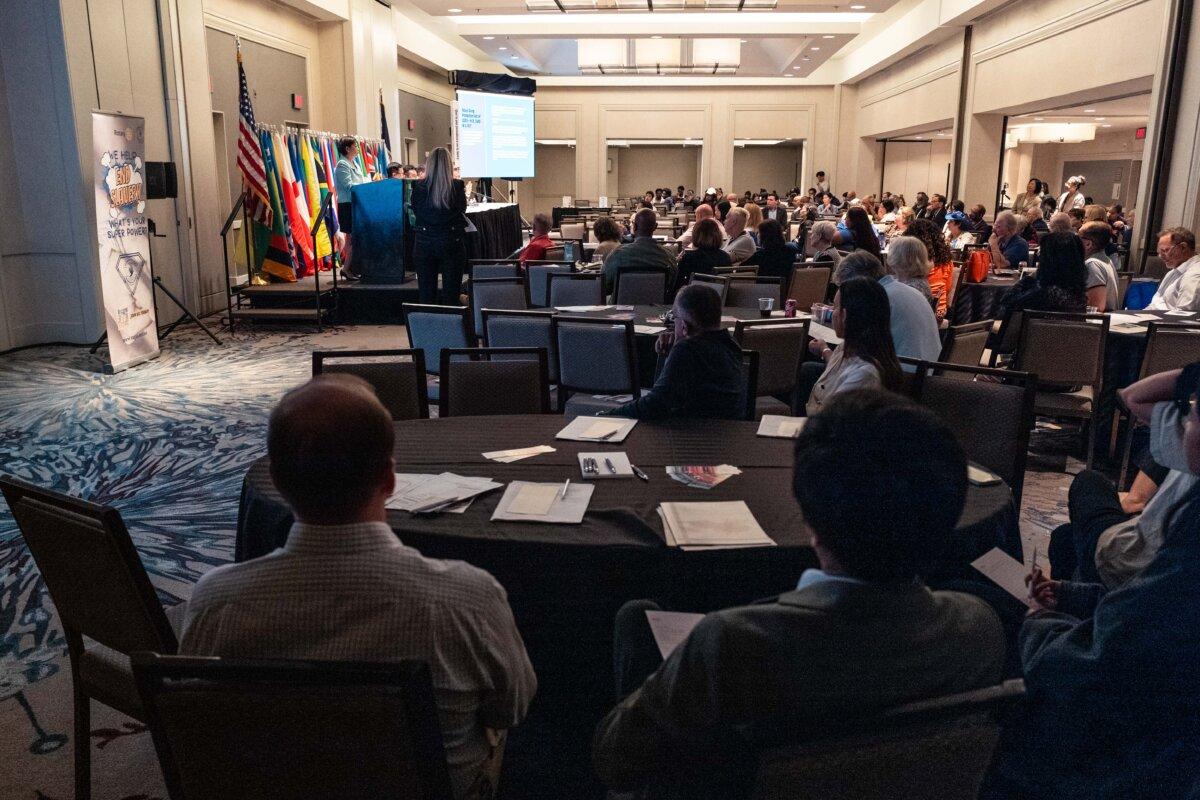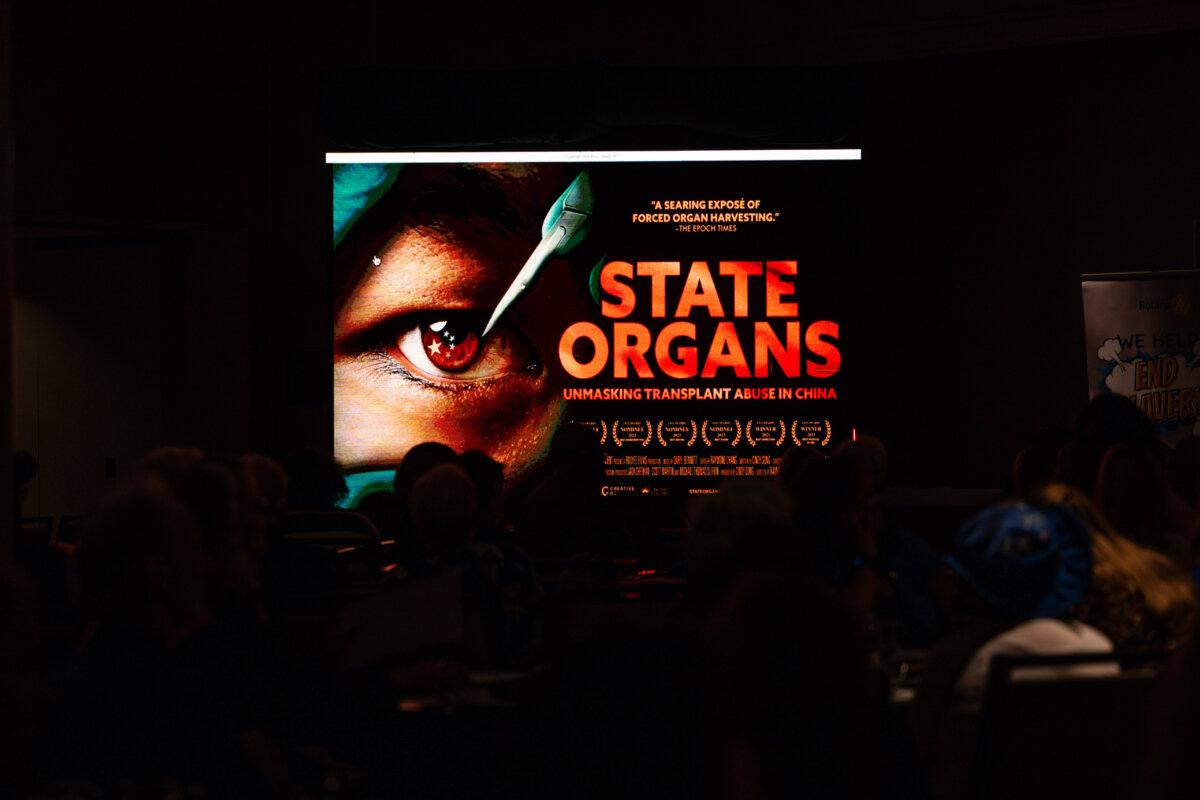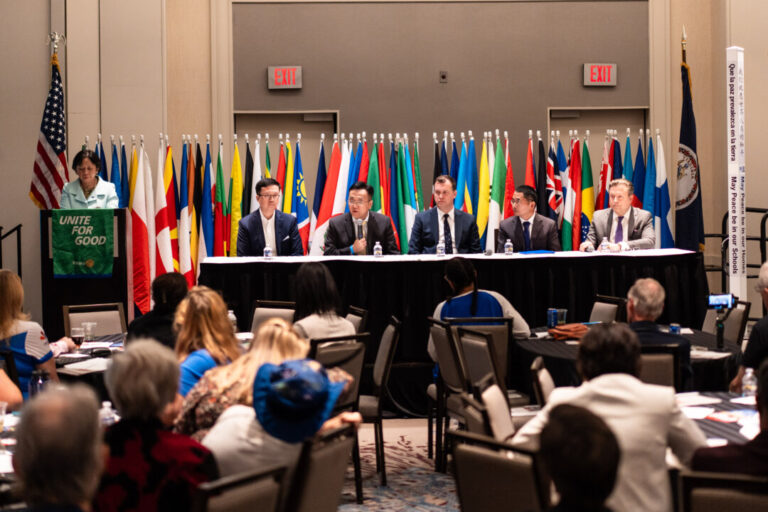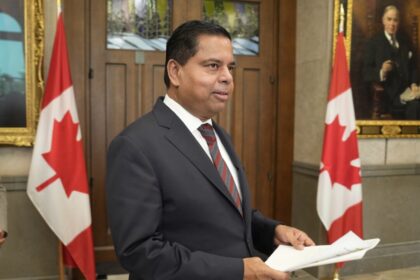WASHINGTON—A recent screening of a documentary on forced organ harvesting in communist China sparked concern among audience members, who said the public needs to be more aware of the state crime.
“State Organs: Unmasking Transplant Abuse in China” tells the story of Zhang Yun and Shawn Huang, who disappeared under suspicious circumstances in China in the early 2000s. It follows the heart-wrenching journey of their families, who have been searching for them for more than 20 years.
The families uncover a chilling reality—an organ harvesting industry operated under the sanction of the Chinese Communist Party (CCP).
The Oct. 3 screening, part of a joint conference of Rotary Districts 7610 and 7620, was hosted by Amelia Stansell, chair of District 7610’s Rotary Action Group Against Slavery.
Stansell said she was impressed by the film’s effect on her fellow Rotarians and others in the audience.
“When I turned around and saw everybody’s faces, saw tears in their eyes, I think that’s what impressed me the most and touched me the most,” Stansell told The Epoch Times.
She said it was her second time seeing the film, but this time, the idea that someone could be forcibly disappeared in China touched her in a “profound way.”
“That’s more than just kidnapping,” Stansell said. “They’re just gone … no hope.”
Kenny Loveless, a Rotarian for more than 30 years, told NTD, a sister outlet of The Epoch Times, that his heart went out to the families trying to find their missing relatives.
“For the families that always hold that little bit of hope that their children, their child, their brother, their sister, might be returned home, that’s a torture that they live with every single day,” Loveless said.

A screening of the documentary “State Organs: Unmasking Transplant Abuse in China,” in Washington on Oct. 3, 2025. Madalina Kilroy/The Epoch Times
During the Q-and-A portion of the event, an audience member said she was “astounded by the gravity and the brutality.”
“I cannot believe that I didn’t know anything about this until today,“ she said. ”How do we get this film out? Because I can think of hundreds of people that I could show this film to.”
For decades, China has been a major hub for organ transplant tourists, lured by the country’s unusually short waiting times for donor organs. This is driven by the CCP’s exploitation of prisoners—particularly those incarcerated for their beliefs—who are systematically used as a living organ bank.
Dr. Andreas Weber, a surgeon and Germany-based representative of Doctors Against Forced Organ Harvesting, said he knew of a patient in Germany who had traveled to China to receive a liver transplant because of alcoholism.
Weber said she had a rare blood type, but China was able to find a matching organ for her within six months, which he described as “unthinkable” in countries where organ donation systems are based on ethical values.
“So she paid $400,000 a liver. And since she’s an alcoholic, one wasn’t enough. So she went down there three times, and she bought three livers,” Webster said. “She paid $400,000 each.”
In 2020, a London-based independent people’s tribunal found after an 18-month investigation that the Chinese regime had been forcibly harvesting organs from prisoners of conscience for many years, with the primary victims being Falun Gong practitioners.

A screening of the documentary “State Organs: Unmasking Transplant Abuse in China,” in Washington on Oct. 3, 2025. Madalina Kilroy/The Epoch Times
Falun Gong, also known as Falun Dafa, is a spiritual discipline based on the principles of truthfulness, compassion, and forbearance. First introduced to the public in China in 1992, the practice quickly spread by word of mouth to reach an estimated 70 million to 100 million practitioners by 1999.
The CCP, fearing that Falun Gong’s popularity threatened the regime’s power, began a brutal campaign to eradicate the practice on July 20, 1999. Since then, its practitioners have been subjected to arbitrary detention, forced labor, torture, and even death by forced organ harvesting.
Audience member Claudio Roberto Brown emphasized the gravity of the issue, saying, “It’s not some local guy in the back room somewhere in China; this is the highest level of government.”
Vijay Kowtha, president-elect of the Rotary Club of College Park, Maryland, told NTD that he is now worried about the “whole idea of medical tourism.”
The documentary, directed by Peabody Award winner Raymond Zhang, has received a number of awards. In June, it was recognized with an “Outstanding Achievement” award in the Humanitarian Award division at the Accolade Global Film Competition.
Dr. Sam Caughren, a retired medical doctor in family practice, said he would like to see the U.S. government take action.
“I would like to see the government not allow individuals here in the United States to be able to go to China to receive a transplant,” Caughren told NTD.
“That’s one of the things that I think would help to really decrease the possibility [that] they’re able to use such a huge network of individuals as donors.”
Two pieces of U.S. legislation that aim to sanction perpetrators of forced organ harvesting—the Stop Forced Organ Harvesting Act and the Falun Gong Protection Act—were approved by the House of Representatives earlier this year. They await a vote in the Senate.
Sherry Dong and Eva Fu contributed to this report.






